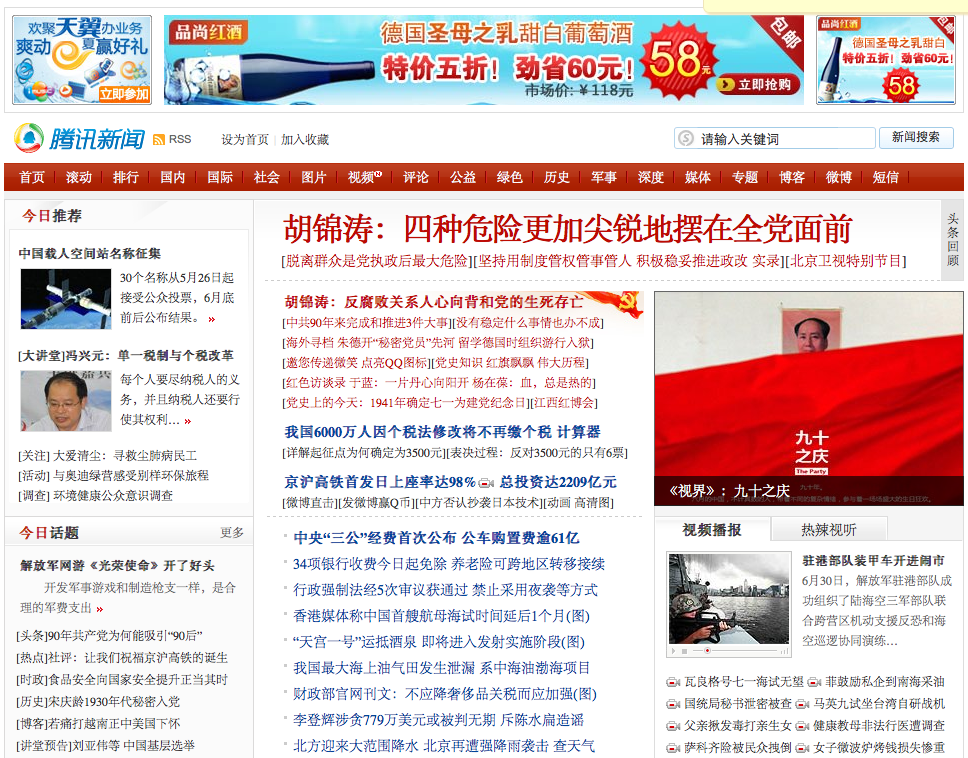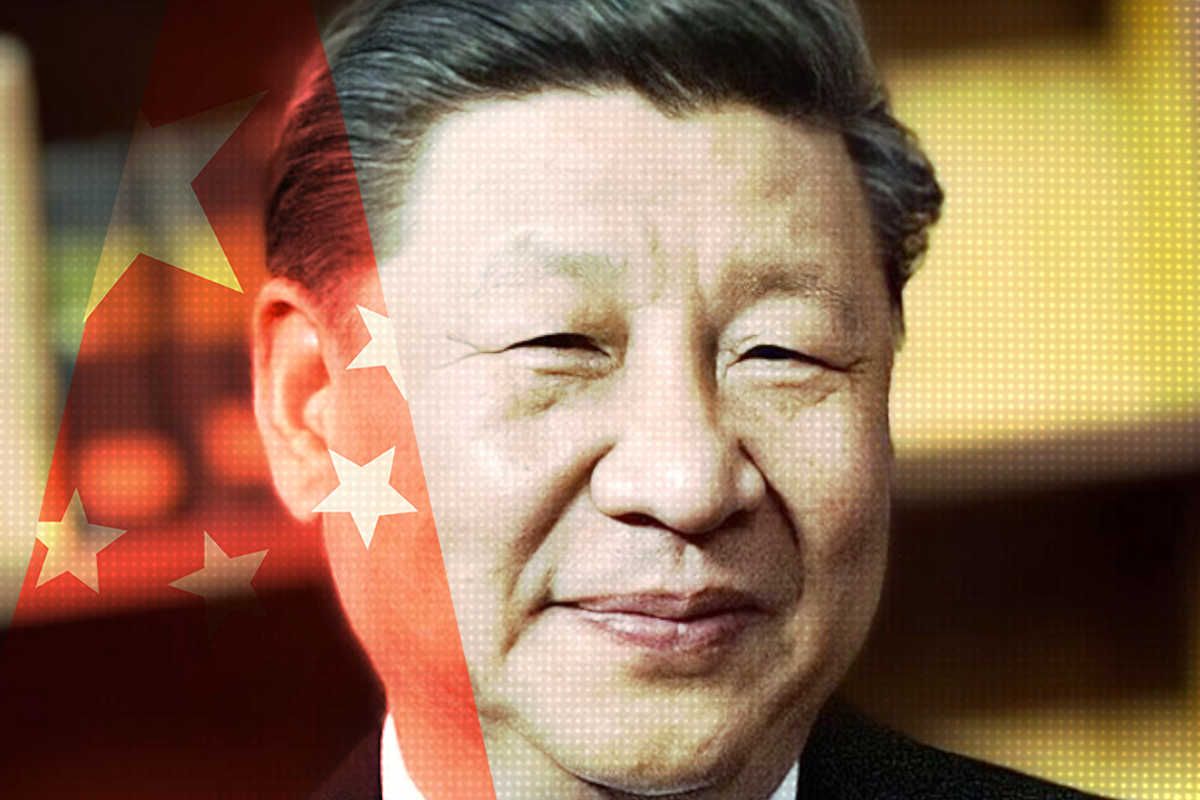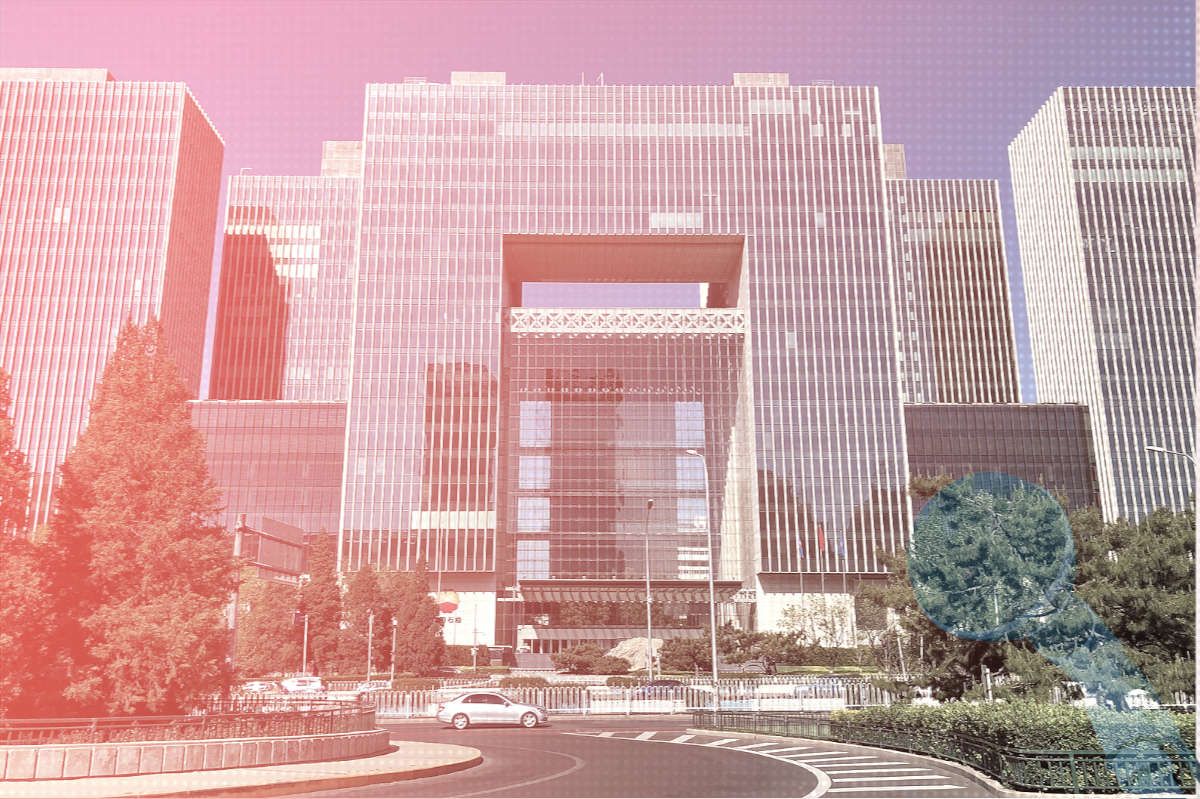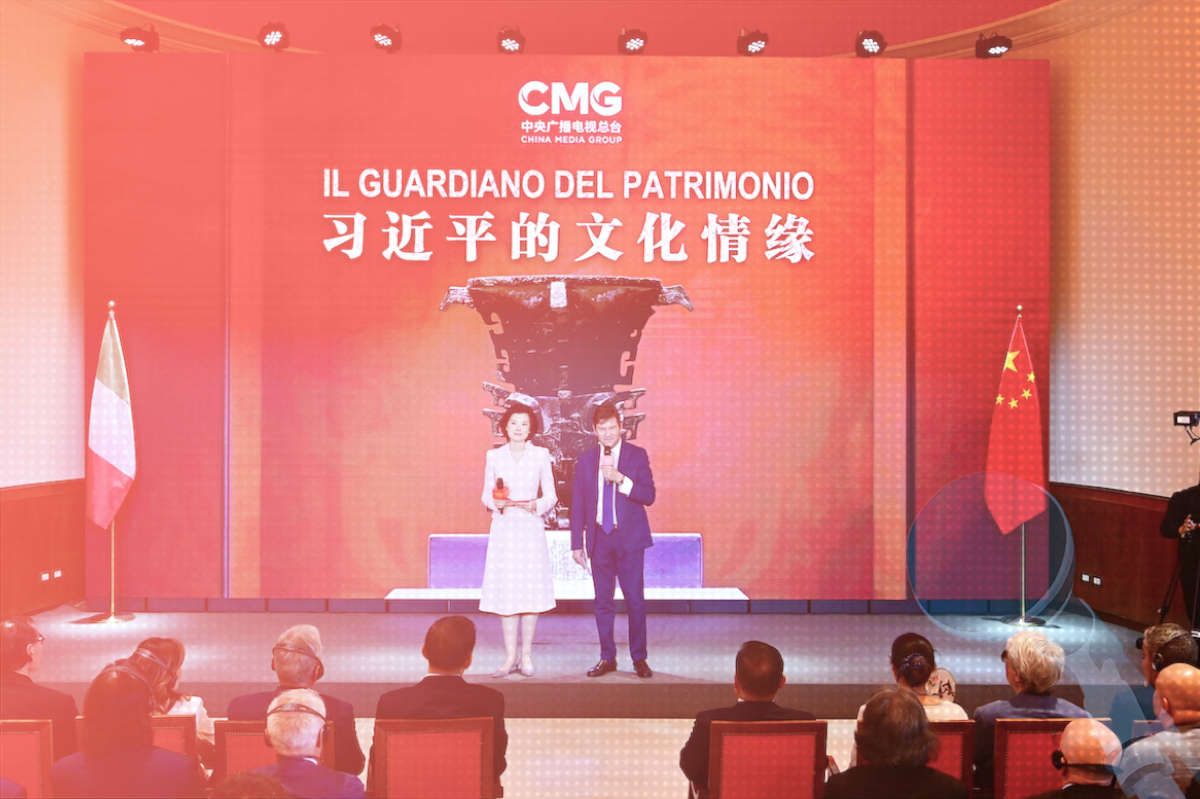In his speech commemorating the 90th anniversary of the Chinese Communist Party yesterday, President Hu Jintao (胡锦涛) spoke for a tensely scripted 72 minutes about the glories of the CCP [English here], its “historic” accomplishments and its “advanced” theoretical frameworks. Avoiding altogether the more sensitive episodes of the Party’s history, Hu’s speech traced China’s coming of age as a modern nation, from the humiliation of the Opium Wars to the 1911 Xinhai Revolution, and on through to the the founding of the People’s Republic of China and the onset of economic reforms.
Not surprisingly, there was plenty of talk of the advanced culture of socialism, but no mention of the Cultural Revolution. There was praise for the “building of the socialist market economy,” but no mention of the economic and political tragedies of the Maoist era, such as the Great Leap Forward, the Anti-rightist Movement and the Great Famine.
The Party’s legacy was described as an unqualified success, a faultless saga of national progress. “All of the accomplishments we have made over the past 90 years are the result of the tenacity and continued struggle of the Chinese Communist Party along with the people. The first generation of central Party leaders of which Mao Zedong was the core led the whole Party, the whole people and the various nationalities of the entire nation in achieving the great victory of the new-democratic revolution, building the basic system of socialism, and setting down the basic political conditions and institutional foundations for all development and progress in China today.”
While emphasizing that Hu Jintao’s speech yesterday can be seen as one of “his most important political declarations ahead of the 18th Party Congress [in 2012],” China Media Project Director Qian Gang (钱钢) said the speech was “completely stable and safe, even lethargic,” and gave every indication that Hu Jintao and China’s current crop of leaders have no intention of taking bolder action, particularly on political reform, to deal with problems currently facing China. Overall, Qian Gang said, the speech suggests that Hu Jintao is “in a situation where he doesn’t dare move forward but doesn’t dare move backward either.”
There is every suggestion in yesterday’s speech that Hu Jintao will maintain the status quo through the remainder of his term in office, and will have a hard time making any concerted move.
Perhaps the most notable thing about Hu’s speech is its overriding emphasis on stability, with stability-related terms buzzwords and phrases appearing with greater frequency than seen in the past three Party anniversary reports delivered by Jiang Zemin or Hu Jintao. Here are the four major anniversary reports we have had in the last two decades:
1991: Jiang Zemin’s report to commemorate the 70th anniversary of the CCP
2001: Jiang Zemin’s report to commemorate the 80th anniversary of the CCP
2006: Hu Jintao’s report to commemorate the 85th anniversary of the CCP
2011: Hu Jintao’s report to commemorate the 90th anniversary of the CCP
While the term “stability” appeared 5 times in the 70th anniversary report, 4 in the 80th, and 6 in the 85th, it appeared at least 10 times in yesterday’s speech. The language of stability, moreover, is more hardline than in Hu’s report to the 17th Party Congress, in which he said, “Social stability is the common wish of the people, and an important condition of reform and development.” In yesterday’s speech, Hu Jintao emphasized for the first time that: “Development is the fundamental principle, stability is the fundamental task; Without stability, nothing can be accomplished, and the gains we have already made will also be lost. This principle is something not only comrades throughout the Party must bear firmly in mind, but that the whole people must be induced to bear firmly in mind.” Hu Jintao even included his catchphrase “to not rock the boat,” or bu zheteng (不折腾), in the closing remarks of yesterday’s speech.
Also at issue here is the tug-of-war we have seen happening within the CCP over the past few years, which speaks to deep unease about where the country needs to go. China’s hardline left has clearly enjoyed greater prominence, and almost certainly has wielded greater influence, in recent months.
Keyword frequencies in Hu Jintao’s speech yesterday do seem to indicate something of a leftward shift.
In the political lexicon of the Chinese Communist Party, Mao Zedong Thought (毛泽东思想), Deng Xiaoping Theory (邓小平理论), the Three Represents (三个代表) and the Scientific View of Development (科学发展观) are terms representing the political ideas and gravitas of four generations of leaders — Mao Zedong, Deng Xiaoping, Jiang Zemin and Hu Jintao. The relative strength or weakness of these terms is closely tied to shifts in political power. And we can see significant changes in the use of these terms in the four major anniversary reports we have seen in the last two decades, based on Qian Gang’s analysis.
Jiang Zemin’s 1991 report followed on the heels of the Tiananmen Massacre, and economic reforms were stalled at the time, almost a year before Deng Xiaoping’s “southern tour” (南巡). Jiang’s speech that year mentioned “Mao Zedong Thought” 12 times, a clear nod to conservative leaders on the left. But the term declined in each of the successive reports in 2001 and 2006. The reigning terms during the 80th anniversary in 2001 were the “Three Represents,” Jiang Zemin’s signature theory, and “Deng Xiaoping Theory”. But in 2006, both of these terms took a backseat to Hu Jintao’s new buzzword, the “Scientific View of Development.”
In yesterday’s speech, however, we see a startling reshuffle of terms and their relative power. Hu Jintao’s “Scientific View of Development” has plunged, and Deng Xiaoping and Jiang Zemin terminologies similarly show decline. By contrast, “Mao Zedong Thought” is resurgent. So the order of precedence has been flipped: Mao, Jiang-Deng, Hu.
Hu Jintao also mentioned “Scientific Development” (without the full term) several times in the speech, but even when all related instances are factored together they emerge only nine times in the speech, compared to 17 times for the full term in Hu’s 2006 speech to commemorate the Party’s 85th anniversary.
“Deng Xiaoping Theory” and the “Three Represents” have in the past been terms of political strength. But Hu Jintao spoke yesterday of just two “great theoretical achievements” of the Party. The first, he said, was “Mao Zedong Thought”, and the second was the “theoretical system of socialism with Chinese characteristics” (中国特色社会主义理论体系) — which included “Deng Xiaoping Theory,” the “Three Represents” and the “Scientific View of Development.” This packing together of “theoretical achievements” after Mao in fact suggests a weakening of status of Deng Xiaoping and Jiang Zemin. And, says Qian Gang: “Hu Jintao seems to have given up the ambition of [establishing] the ‘Scientific View of Development’ as his personal political trademark. This is a rather peculiar circumstance.”
Could this signal the fact that China’s top leaders have seen their power eroded ahead of next year’s 18th Party Congress, and that a tug-of-war is underway among the Party’s elite? Is there a new dominant political “theory” waiting in the wings? To what extent can we see the ascendance of “Mao Zedong Thought” in Hu’s speech as a sign of a further leftward shift in Chinese politics?
One of the most notable things about yesterday’s celebration was not just, as Hong Kong media quickly noted, the conspicuous absence of Jiang Zemin, who is rumored to be seriously ill, but the surprising presence of the 94-year-old Song Ping (宋平), a formidable figure who has been called the “king of the left” (左王). Song, long rumored himself to be seriously ill, was out yesterday with an air of return — and seated, it must be noted, at the center of the rostrum along with the former premier Zhu Rongji (朱镕基). Does this mean we can expect a shake-up in Chinese politics ahead of the 18th Party Congress?
These are all things we will have to watch closely.
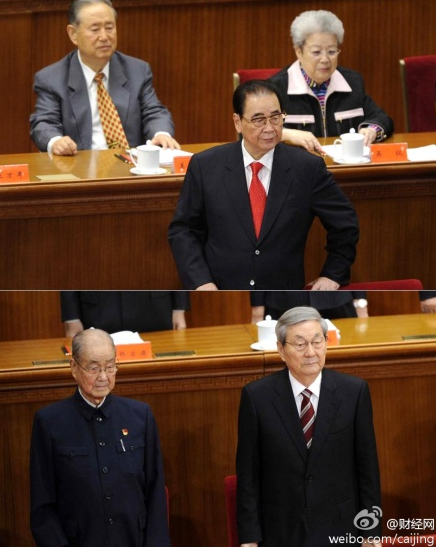
[ABOVE: Song Ping (bottom left), sometimes called the “king” of China’s left, stands next to former premier Zhu Rongji in a position of prominence during yesterday’s celebrations.]
While yesterday’s speech does not differ greatly from Hu Jintao’s political report to the 17th Party Congress in 2007, there are a number of points that clearly mark a step back.
Qian Gang says: “He is unable to answer those questions which have received ever more urgent attention in China in recent years: rights defense, the fight against corruption and political reform. He has great praise for the Party’s achievements in the area of democratic politics, but as for the future there is no vision or promise.”
Qian Gang also notes that the formula of the “four rights,” which Hu spoke of in 2007 — namely, the right to know (知情权), right to participate (参与权), right to express (表达权) and right to monitor (监督权) — are completely absent in yesterday’s speech. Nor was there any mention of “supervision by public opinion,” or yulun jiandu (舆论监督), a term routinely appearing in political reports and past anniversary speeches and denoting the importance of the press and public opinion in monitoring power.
The only portion of Hu Jintao’s speech that was not self-congratulatory came in the 24th minute. Following his litany of praise for the historic victories of the Chinese Communist Party and the people of China, Hu said the Party now faces internal challenges that are “more strenuous and pressing than at any point in the past.” He stressed that the Party faces “four dangers” — lost vitality (精神懈怠), insufficient capacity (能力不足), alienation from the people (脱离群众) and rampant corruption (消极腐败).
But while Hu gave a nod to the problem of official corruption, which is now a source of broad public anger, no substantive action was mentioned. He did not, for example, raise the issue of declaration of assets by officials (官员财产申报).
In sum, Hu Jintao’s speech yesterday was cautious in the extreme, a further sign that the mood of glorious celebration in China is backgrounded by a deep unease.
Those professional Chinese media scrambling to take something positive away from the speech, or to use it to advance more liberal agendas, could only seize on that portion dealing with the “four dangers.” This was exactly what news editors at QQ.com did yesterday, playing down the atmosphere of celebration and self-congratulation. The bright red headline at the top reads: “Four dangers now urgently face us.”
